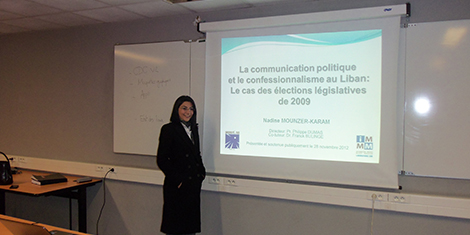Celebrate your roots


Even in the field of Islamic scholarship, for example, many Malaysians tend to fawn over scholars that come from abroad more than they do with our local scholars.
Of course, this is their right and freedom to do so as we all have our preferences and, perhaps, there are some of us who prefer to hear sermons in the English language.
However, when I was in Melaka last year to attend Rihla, a three-week Islamic programme, run by an American-based organisation called Deen Intensive, I was pleasantly surprised to learn that they have benefitted greatly from local Muslim scholars.
One of the names that came up quite frequently was Tan Sri Professor Syed Muhammad Naquib al-Attas, whose publications such as Islam & Secularisation and On Justice and The Nature of Man have helped to reorient their worldview and broaden their minds.
Professor Wan Mohd Nor Wan Daud, founder-director of Centre for Advanced Studies on Islam (CASIS), Universiti Teknologi Malaysia, was also invited to teach at the programme and he was well-received. Out of all the teachers and scholars present, he was the only one I recalled having received a thunderous ovation.
Most of the students at the programme were from the United States and Europe, and they had many questions to ask Wan Daud. There was hardly a time he was not asked to sign a copy of his book, The Educational Philosophy and Practice of Syed Muhammad Naquib Al-Attas.
There are many brilliant minds in Malaysian society and they exist in every field you can think of. For philanthropy, we have Tan Sri Dr Jemilah Mahmood. For entrepreneurship, we have Tan Sri Tony Fernandes and Tan Sri Vincent Tan. For film directorship, we have the late Yasmin Ahmad, whose films have become classics.
While some of Malaysia’s most successful have been educated abroad, many others aren’t.
It is sad that there are people who feel embarrassed about their roots, or even worse, they are made to feel inadequate for wanting to give back to the country they were raised in.
I notice that people tend to show more curiosity towards those who have been educated abroad. I also notice that some people show disinterest when someone says that he or she studied locally, as if their academic credentials carry less weight.
It is not a shame to be a product of local education. It is not a shame to be a product of a completely Malaysian upbringing either. Having pride and respect for where I came from was something I had to learn when I was studying in England. There were times I received snarky comments about being a Malaysian Muslim due to the stereotypes that were associated with being Asian and Muslim. I have to assert, however, that those were just isolated events and most of my English friends were accepting of my background.
I was reading the book, Leaving One Dream to Achieve Another: One Lecturer’s PhD’s Journey, by Dr Murni Wan Mohd Nor, and in one of the chapters, she mentioned the discouragement she experienced when she told people that she was pursuing her doctoral degree locally.
In her book, she says: “People looked at me with pity in their eyes.”
“I was so tired with the typical Malaysian mindset that anything local (which included local graduates) must be of lesser quality. Why do we have no confidence in ourselves? Why can’t we believe that we are just as good as others? It saddened me that people kept trying to bring me down with their discouraging remarks.”
“It is not about what institution you are from, but it is about what you make of yourself. And with that, my attitude changed and I was even more motivated to succeed.”
Having no confidence in ourselves is what allows others to dominate how we think and live our lives. If we claim we are from an independent country, let our mentality reflect that. If we cannot take pride in our roots, then, perhaps, our minds are still colonised and we have a long way to go to being free.
If a strong and mighty tree depends on its roots to stay anchored to the ground, then surely we are bound to fall by uprooting ours.
Raja Sarina Iskandar is a freelance writer, a blogger at www.dearsarina.com. She is a millennial trying to make a difference, starting with herself.
More Articles.

10 Kesilapan Kewangan Orang Muda
Saya pernah muda sekali. Dan kerana pernah menjadi muda, saya melalaui banyak kesilapan kewangan yang akhirnya memakan diri. Di bawah ini, saya sertakan 10 kesilapan

Life Is Like A Wheel
Assalammualaikum dan salam 1 UiTM. So here is the story of a girl who had an intention to commit a suicide and ended up graduated

Tips Persediaan Menghadapi Viva
Pelajar di peringkat sarjana dan doktor falsafah memahami benar erti viva kerana di penghujung pengajian, mereka akan menempoh peringkat akhir halangan sebelum dianugerahkan ijazah. Berbeza


